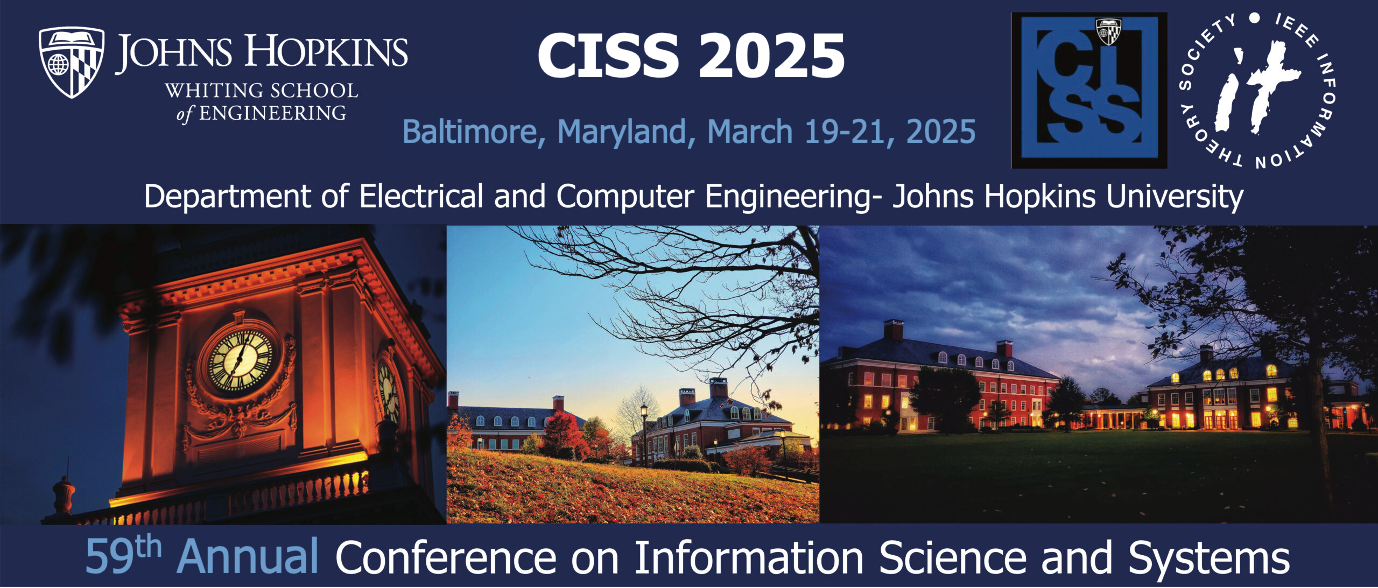Optimization & Control of Network & Distributed Energy Resources II – Invited Special Session
C3L-F: Optimization & Control of Network & Distributed Energy Resources II - Invited Special Session
Session Type: LectureSession Code: C3L-F
Location: Room 6
Date & Time: Friday March 24, 2023 (11:20-12:20)
Chair: Mads Almassalkhi
Track: 12
| Paper ID | Paper Title | Authors | Abstract |
|---|---|---|---|
| 3164 | Stochastic and Private Decentralized Control of Electrical Loads | Yury Dvorkin | This presentation will report on stochastic and privacy-preserving methods for electrical loads participating in demand response programs. Building on the developed linearly-solvable Markov decision problem, we will derive a decentralized approach that leads to the optimal control policy in both myopic and multi-stage settings. We will illustrate the performance of these methods using real-world data. |
| 3185 | Distributed Energy Resource Coordination Across Space and Time: Models, Control, and Networks | Mads Almassalkhi | Distributed energy resources or DERs come in many different shapes and sizes. From batteries to solar photovoltaics (PV) to responsive residential loads, such as smart thermostatically controlled loads (TCLs) or HVAC devices. Large-scale renewable integration will require unlocking flexibility from millions of DERs, which will necessitate scalable and responsive methods of coordination, modeling, and controlling the available aggregate flexible resources, characterizing and accounting for uncertainties, and considering the impact on physical networks within which the DERs physically reside. This talk will provide an overview of some of the challenges as well as present recent technical results on different methodologies for unlocking flexibility and the roles of models, control, and networks. |
| 3044 | Aggregator-Utility Coordination for Network-Aware DER Control | Sunho Jang, Necmiye Ozay, Johanna Mathieu | Collections of Distributed Energy Resources (DERs) can provide balancing services to the grid, but their power variations might cause constraint violations in the distribution network, compromising network safety. This could be avoided by including distribution network constraints within DER control formulations, but the entity coordinating DERs (e.g., a third-party aggregator) may not have access to network information, which typically is known only to the utility. Therefore, it is challenging to develop network-safe DER control algorithms when the aggregator is not the utility; it requires the aggregator and utility to coordinate with each other. To address this challenge, we develop an aggregator-utility coordination framework, that enables network-safe control of thermostatic loads and batteries to provide frequency regulation. In our framework, the utility sends a network-safe constraint set on the aggregator\'s control command without directly sharing any network information. We propose a constraint set construction algorithm that guarantees satisfaction of a chance constraint on network safety with a certain confidence level. Assuming monotonicity of the probability of network safety with respect to the aggregator\'s control command, we leverage the bisection method to find the largest possible constraint set, which provides the largest flexibility to the aggregator. Simulations show that, compared to two benchmark algorithms, the proposed approach provides a good balance between service quality and network safety. |
